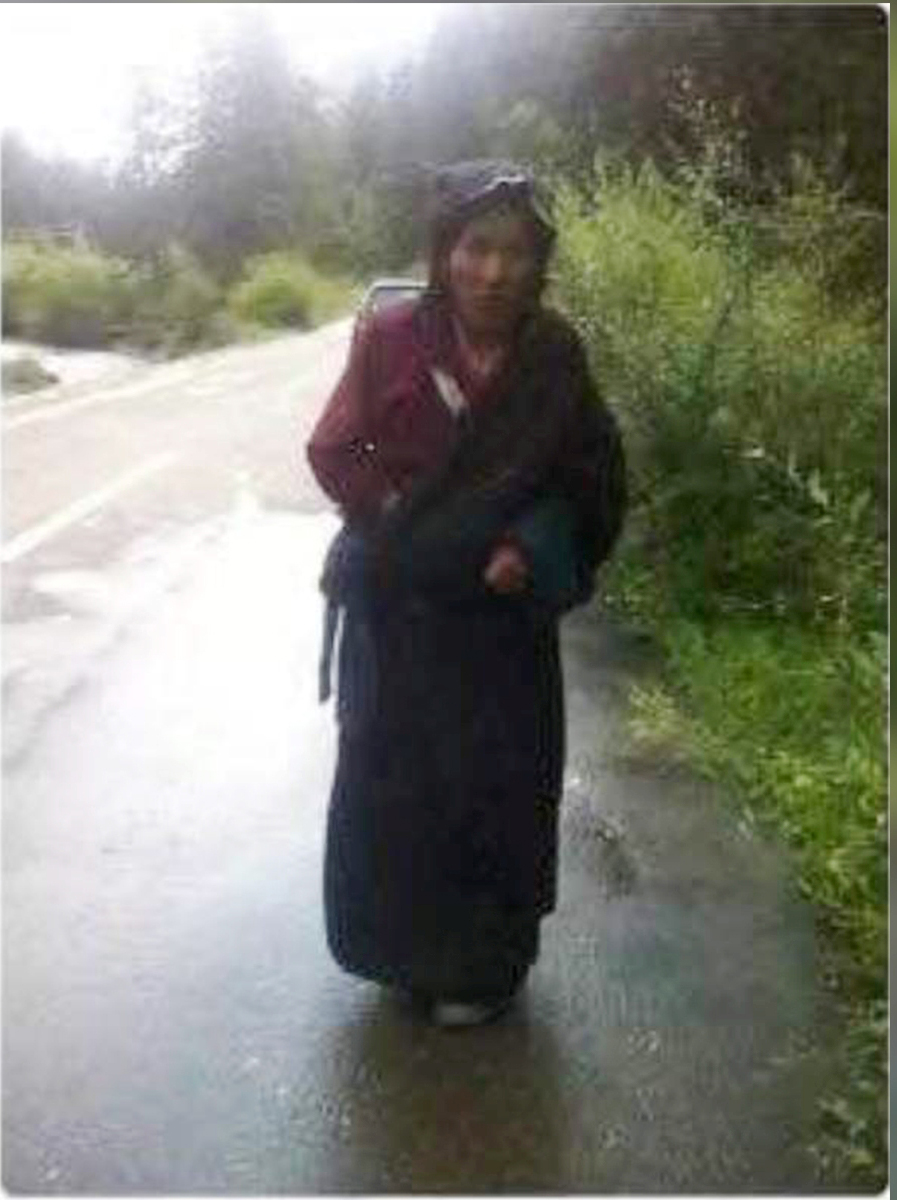
Chinese authorities have destroyed photographic and video evidence of a self-immolation protest staged by a 50-year-old Tibetan woman in Dzoege (Chinese: Ru’ergai) County located in present-day Ngaba (Ch: Aba) Tibetan and Qiang Autonomous Prefecture, Sichuan Province.
Sonam Tso, a mother of five children set herself on fire in March this year at the circumambulation path around Sera Monastery in Akyi Township in Dzoege County to protest the repressive policies implemented by Chinese government in Tibet.
Information received by TCHRD confirms that Sonam Tso set herself on fire at around 12.30 pm local time on 23 March at the circumambulaton path at Sera Monastery. At the time, she was circumambulating the monastery along with her husband Kelsang Gyatso. She had asked her husband to continue walking and excused herself to visit the nearby prayer wheel temple.
Some minutes after she was gone, a young monk was heard shouting that there was a self-immolation. Hearing the young monk shout, Kelsang Gyatso turned around and saw his wife in flames. Still on fire, she shouted slogans calling for freedom and return of His Holiness the Dalai Lama to Tibet. Both Kelsang Gyatso and the unidentified young monk tried to put out the fire. They were joined in the attempt by another monk named Tsultrim, a relative of Sonam Tso. They then took Sonam Tso in a vehicle to the residence of the monastery’s abbot. All the while, Sonam Tso continued shouting the slogans. Later, attempts were made to save her life by taking her from the abbot’s residence to a hospital but she died when they had just passed the monastery compound.
The next morning on 24 March, a group of local Chinese police arrived at Sonam Tso’s home and demanded her family to hand over the body. In order to ensure that Sonam Tso received proper funeral rites, her family responded that they had already cremated the body and that there was nothing to hand over. The same day the family laid Sonam Tso to rest following Tibetan Buddhist traditions.
Local Chinese police however interrogated and detained the deceased’s relative Tsultrim for eight days and destroyed all images and information he had collected on his phone about Sonam Tso’s self-immolation. The deceased’s husband Kelsang Gyatso was also intrerrogated several times. Their current condition and whereabouts remain unknown.
A source with contacts in Tibet told TCHRD that Sonam Tso had left a letter before staging the self-immolation protest. Attempts are being made to obtain this letter.
In the age of high-speed internet, it took about 45 days for the outside world to know about Sonam Tso’s self-immolation protest. This clearly indicates that Tibetans are subjected to extreme control and surveillance and forced to live in a climate of fear and repression. Whether online or offline, the movement and activities of local Tibetans are closely monitored and spied on by the ever-increasing number of uniformed and plainclothes army and police personnel, in addition to online surveillance and censors.
In such a scenario, a number of self-immolation and attempted self-immolation protests, often conducted in remote corners of Tibet to escape attention from the authorities, remain unknown for months or not reported at all.
Sonam Tso was born and raised in Dotsa Village in Akyi Township, Dzoege County, in the traditional Tibetan province of Amdo. She is survived by her husband and five children: two sons and three daughters, the oldest daughter is a nun.
